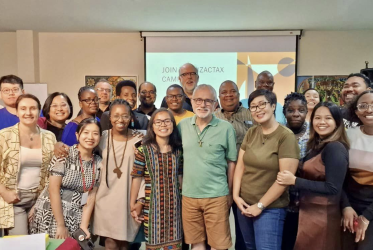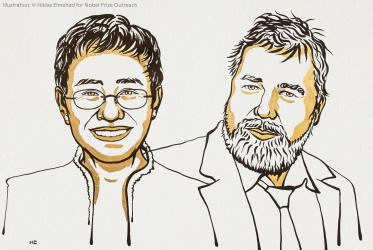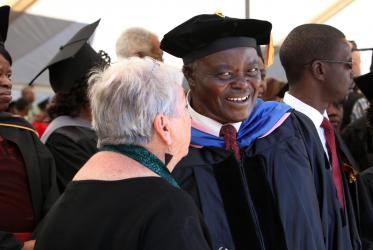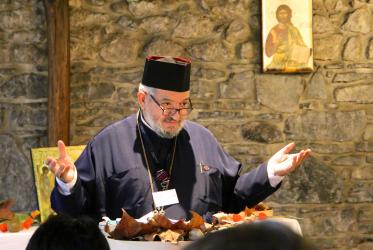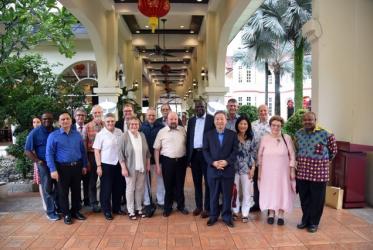Displaying 1 - 20 of 48
08 September 2023
WCC congratulates 2021 Nobel Peace Prize laureates
14 October 2021
WCC remembers life of Patrick Matsikenyiri, a joyful song leader
15 February 2021
New student body at Bossey Ecumenical Institute “a source of joy”
14 September 2020
Young Africans are eager to grapple with challenges
09 January 2020
WCC condemns massacre of farmers in Philippines
12 April 2019
